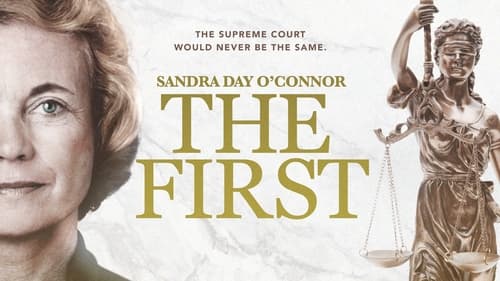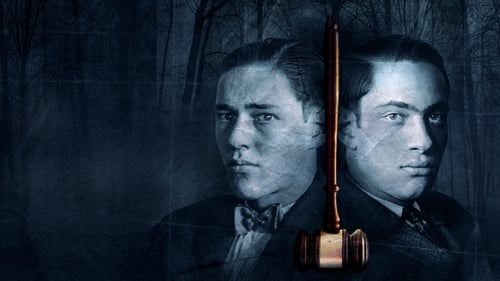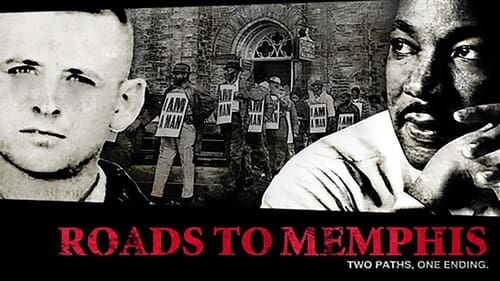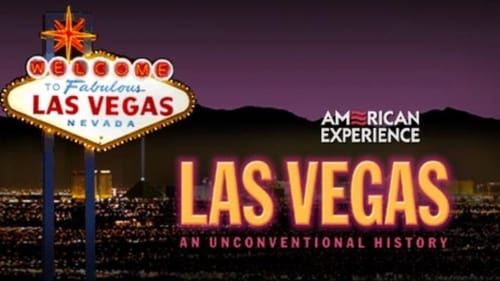
Director
When Ronald Reagan nominated Sandra Day O’Connor as the Supreme Court’s first female justice in 1981, the announcement dominated the news. Time Magazine’s cover proclaimed “Justice At Last,” and she received unanimous Senate approval. Born in 1930 in El Paso, Texas, O’Connor grew up on a cattle ranch in Arizona in an era when women were expected to become homemakers. After graduating near the top of her class at Stanford Law School, she could not convince a single law firm to interview her, so she turned to volunteer work and public service. A Republican, she served two terms in the Arizona state senate, then became a judge on the state court of appeals. During her 25 years on the Supreme Court, O’Connor was the critical swing vote on cases involving some of the 20th century’s most controversial issues. Forty years after her confirmation, this biography recounts the life of a pioneering woman who both reflected and shaped an era.

Producer
The Eugenics Crusade tells the story of the eugenics movement and its long history in the United States, from its beginnings in the study of heredity, to its rise as a popular movement promising to uplift the human race through state sponsored sterilization, to its influence on immigration laws designed to close our borders to groups deemed genetically inferior.

Director
The Eugenics Crusade tells the story of the eugenics movement and its long history in the United States, from its beginnings in the study of heredity, to its rise as a popular movement promising to uplift the human race through state sponsored sterilization, to its influence on immigration laws designed to close our borders to groups deemed genetically inferior.

Writer
The Eugenics Crusade tells the story of the eugenics movement and its long history in the United States, from its beginnings in the study of heredity, to its rise as a popular movement promising to uplift the human race through state sponsored sterilization, to its influence on immigration laws designed to close our borders to groups deemed genetically inferior.

Writer
RACHEL CARSON is an intimate portrait of the woman whose groundbreaking books revolutionized our relationship to the natural world. When Silent Spring was published in September 1962 it became an instant bestseller and would go on to spark dramatic changes in the way the government regulated pesticides.

Director
RACHEL CARSON is an intimate portrait of the woman whose groundbreaking books revolutionized our relationship to the natural world. When Silent Spring was published in September 1962 it became an instant bestseller and would go on to spark dramatic changes in the way the government regulated pesticides.

Writer
The shocking story of Richard Leopold and Nathan Loeb, two wealthy college students who murdered a 14-year-old boy in 1924 to prove they were smart enough to get away with it.

Writer
By the time he died in 1931, Thomas Alva Edison was one of the most famous men in the world. The holder of more patents than any other inventor in history, Edison had achieved glory as the genius behind such revolutionary inventions as sound recording, motion pictures, and electric light. Born on the threshold of America's burgeoning industrial empire, Edison's curiosity led him to its cutting edge. With just three months of formal schooling, he took on one seemingly impossible technical challenge after another, and through intuition, persistence, and a unique team approach to innovation, invariably solved it. Driven and intensely competitive, Edison was often neglectful in his private life and could be ruthless in business. Challenged by competition in the industry he'd founded, Edison launched an ugly propaganda campaign against his rivals, and used his credibility as an electrical expert to help ensure that high-voltage electrocution became a form of capital punishment.

Director
By the time he died in 1931, Thomas Alva Edison was one of the most famous men in the world. The holder of more patents than any other inventor in history, Edison had achieved glory as the genius behind such revolutionary inventions as sound recording, motion pictures, and electric light. Born on the threshold of America's burgeoning industrial empire, Edison's curiosity led him to its cutting edge. With just three months of formal schooling, he took on one seemingly impossible technical challenge after another, and through intuition, persistence, and a unique team approach to innovation, invariably solved it. Driven and intensely competitive, Edison was often neglectful in his private life and could be ruthless in business. Challenged by competition in the industry he'd founded, Edison launched an ugly propaganda campaign against his rivals, and used his credibility as an electrical expert to help ensure that high-voltage electrocution became a form of capital punishment.

Story
In 1918, when New York City hired its first scientifically trained medical examiner Charles Norris. Over the course of a decade and a half, Norris and his extraordinarily driven and talented chief toxicologist, Alexander Gettler, would turn forensic chemistry into a formidable science, sending many a murderer to the electric chair and setting the standards that the rest of the country would ultimately adopt.

Writer
An account of Orson Welles' 1938 radio drama broadcast that inadvertently started a mass panic.

Writer
On August 15th, 1914, the Panama Canal opened, connecting the world's two largest oceans and signaling America's emergence as a global superpower.

Writer
The wildly disparate yet fatefully entwined stories of assassin James Earl Ray and his target, Dr. Martin Luther King Jr.

Writer
In the wake of hurricane Katrina, as Americans begin a dialogue about the future of one of the nation's most distinctive cities, AMERICAN EXPERIENCE presents a provocative history of the city that lies at the mouth of the mighty Mississippi. Walled in on almost all sides by water, pressed together by the demands of geography, New Orleans has always been a laboratory where the social forces play out in dramatic and, at times, disastrous fashion.

Writer
Traces the often surprising, endlessly entertaining history of the country's most outrageous playground. Interviews with Las Vegas insiders as well as everyday citizens in search of the American Dream chronicle how Las Vegas transformed itself from remote frontier way station into the Depression-era "Gateway to the Hoover Dam," then into the mid-century gangster metropolis known as "Sin City," and finally into a family vacation destination and the fastest-growing city in the United States.

Writer
Tracking the country’s oldest beauty contest—from its inception in 1921 as a local seaside pageant to its heyday as one of the country’s most popular events—Miss America paints a vivid picture of an institution that has come to reveal much about a changing nation. The pageant is about commercialism and sexual politics, about big business and small towns. But beyond the symbolism lies a human story—at once moving, inspiring, infuriating, funny, and poignant. Combining rare archival footage, with a host of intimate interviews with distinguished commentators including Gloria Steinem, Margaret Cho, Isaac Mizrahi, former contestants and behind–the–scenes footage and photographs, the film reveals why some women took part in the fledgling event and why others briefly rejected it - how the pageant became a battle ground and a barometer for the changing position of women in society.

Writer
In 1995, Kelli Peterson started a gay and straight club at her Salt Lake City high school. The story of her ensuing battle with school authorities in interspersed with looks back at the diary of Michael Wigglesworth, a 17th-century Puritan cleric, at the 30-year love affair of Sarah Orne Jewett and Annie Adams Fields, at Henry Gerber's attempt after World War I to establish a gay-rights organization, at Bayard Rustin's role in the civil rights movement, and at Barbara Gittings' taking on of the American Psychiatric Association's position that homosexuality is illness. One person comments, "To create a place for ourselves in the present, we have to find ourselves in the past."
















